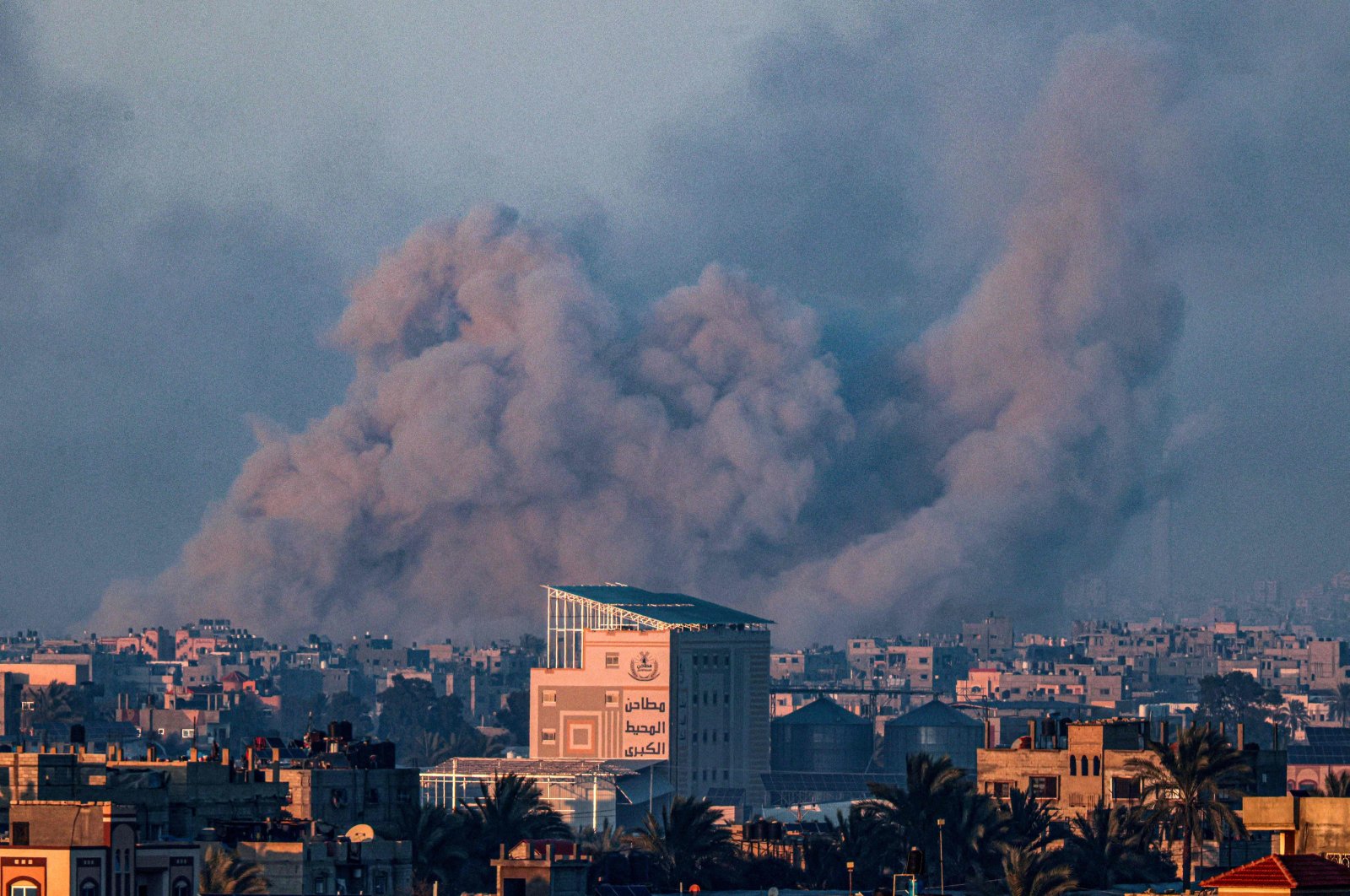
Regional and international actors have raised alarm over Israel's looming military operations in Rafah, voicing concerns that it would spell disaster for the thousands of civilians sheltering there.
Israeli airstrikes killed at least 44 Palestinians – including more than a dozen children – in Rafah, hours after Prime Minister Benjamin Netanyahu said he asked the military to plan for the evacuation of hundreds of thousands of people ahead of an invasion. He gave no details or timeline.
The announcement set off panic. More than half of Gaza's 2.3 million people are packed into Rafah, which borders Egypt. Many fled there after following Israeli evacuation orders that now cover two-thirds of the territory following the Oct. 7 Hamas incursion that sparked the war. It's not clear where they could go next.
Egyptian Foreign Minister Sameh Shoukry said any Israeli ground offensive on Rafah would have "disastrous consequences," and asserted that Israel aims to eventually force the Palestinians out of their land.
Egypt has warned that any movement of Palestinians into Egypt would threaten the four-decade-old peace treaty between Israel and Egypt.
Another mediator, Qatar, also warned of disaster, and Saudi Arabia warned of "very serious repercussions." There's even increasing friction between Netanyahu and the United States, whose officials have said a Rafah invasion with no plan for civilians there would lead to disaster.
"The people in Gaza cannot disappear into thin air," German Foreign Minister Annalena Baerbock said on X, adding that an Israeli offensive on Rafah would be a "humanitarian catastrophe in the making."
Irish Foreign Minister Micheal Martin on Saturday said: "It is absolutely clear that a military operation in Rafah, which has effectively now become one of the largest and most overcrowded refugee camps in the world, would entail grave violations of international humanitarian law."
Britain's Foreign Secretary David Cameron said he was also "deeply concerned" about the planned Israeli ground invasion.
"Deeply concerned about the prospect of a military offensive in Rafah - over half of Gaza's population are sheltering in the area. The priority must be an immediate pause in the fighting to get aid in and hostages out, then progress towards a sustainable, permanent ceasefire," Cameron wrote on X.
Netanyahu, however, maintains it is impossible to eliminate Hamas without invading Rafah.
Despite the wave of criticism, he said he was determined to go ahead.
"Those who say that under no circumstances should we enter Rafah are basically saying lose the war, keep Hamas there," he told ABC News "This Week with George Stephanopoulos" in comments that aired Saturday.
When asked where the civilians should go, Netanyahu said: "You know, the areas that we’ve cleared north of Rafah, plenty of areas there. But we are working out a detailed plan to do so."
Israel has carried out almost daily airstrikes in Rafah, a rare entry point for Gaza's badly needed food and medical supplies, during its current ground combat in Khan Younis just to the north.
Overnight into Saturday, three airstrikes on homes in the Rafah area killed 28 people, according to a health official and Associated Press journalists who saw bodies arriving at hospitals. Each strike killed multiple members of a family, including a total of 10 children, the youngest 3 months old.
The United Nations says the city that's normally home to less than 300,000 people now hosts 1.4 million others who fled fighting elsewhere and is "severely overcrowded." Roughly 80% of Gaza’s people have been displaced.
